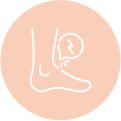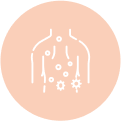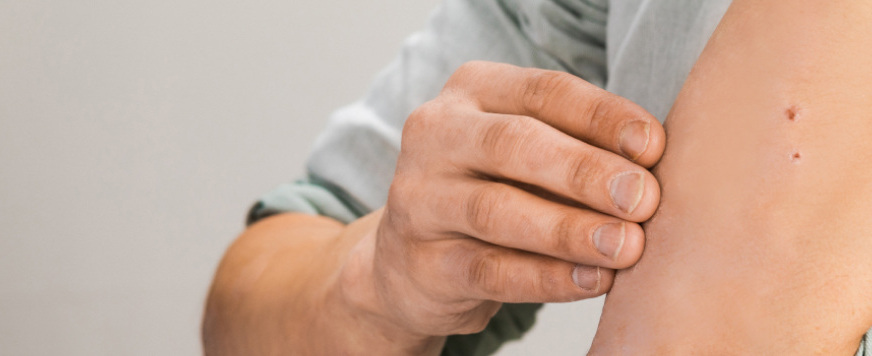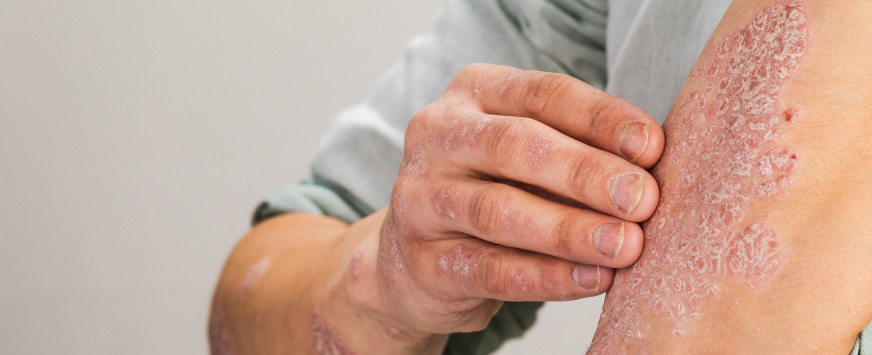Types

Athlete’s foot (Tinea pedis)
This fungal infection affects the skin of the feet, especially between the toes.
To manage
- Keep the affected area clean and dry.
- Use over-the-counter antifungal creams or powders containing ingredients like clotrimazole, terbinafine, or miconazole.
- Wear clean, breathable socks and shoes.
- Avoid walking barefoot in public areas, especially around swimming pools or locker rooms.
- Change socks regularly, particularly if they become damp or sweaty.

Nail fungus (Onychomycosis)
Nail fungus infections can affect the fingernails or toenails, causing thickened, discolored, and brittle nails.
To manage
- Oral antifungal medications prescribed by a healthcare professional are often required for effective treatment.
- Keep nails trimmed and clean.
- Avoid sharing nail clippers, files, or other personal items.
- Wear moisture-wicking socks and shoes that allow airflow to the feet.

Candidiasis
Candidiasis is a fungal infection caused by the Candida species of fungi. It commonly affects the mouth (oral thrush) and genital area (vaginal yeast infection in women, balanitis in men).
To manage
- For oral thrush, use antifungal mouth rinses or lozenges prescribed by a healthcare professional.
- For vaginal yeast infections, over-the-counter antifungal creams or suppositories containing ingredients like miconazole or clotrimazole can be used. It’s advisable to consult with a healthcare professional for proper diagnosis and treatment.
- Keep the affected area clean and dry.
- Avoid wearing tight-fitting or non-breathable clothing.

Ringworm (Tinea corporis)
Ringworm is a fungal infection that can affect the skin on various parts of the body, causing a red, itchy, and circular rash.
To manage
- Keep the affected area clean and dry.
- Apply over-the-counter antifungal creams or lotions containing ingredients like clotrimazole, terbinafine, or miconazole.
- Avoid scratching the affected area to prevent spreading the infection.
- Wash clothes, towels, and bedding in hot water to eliminate any fungal spores.





